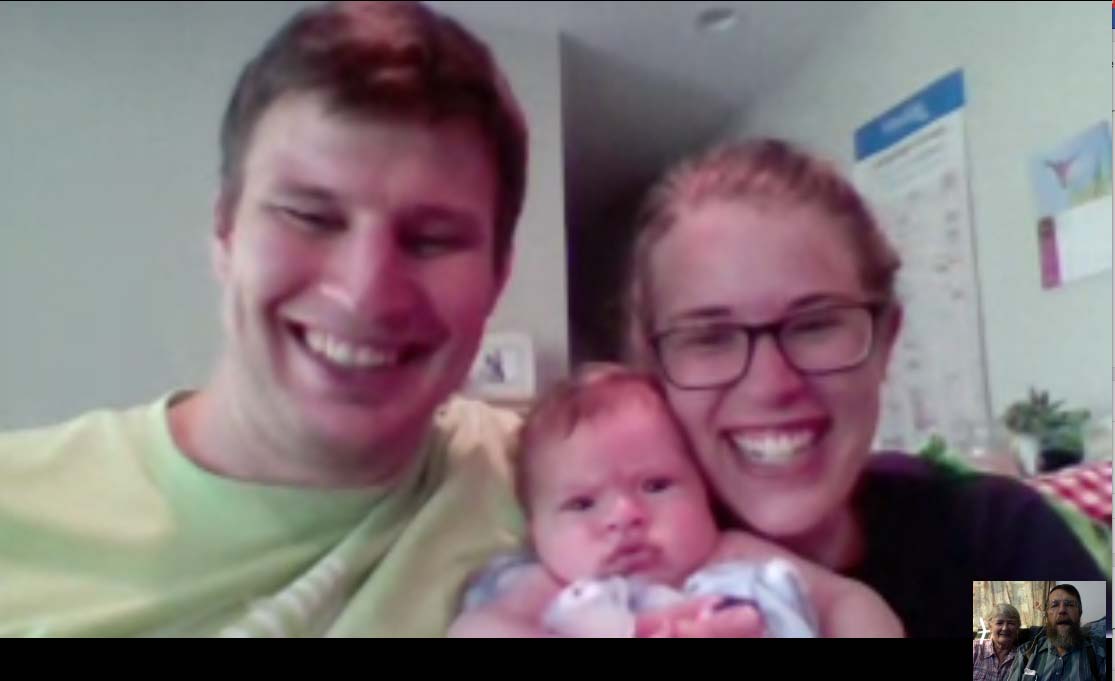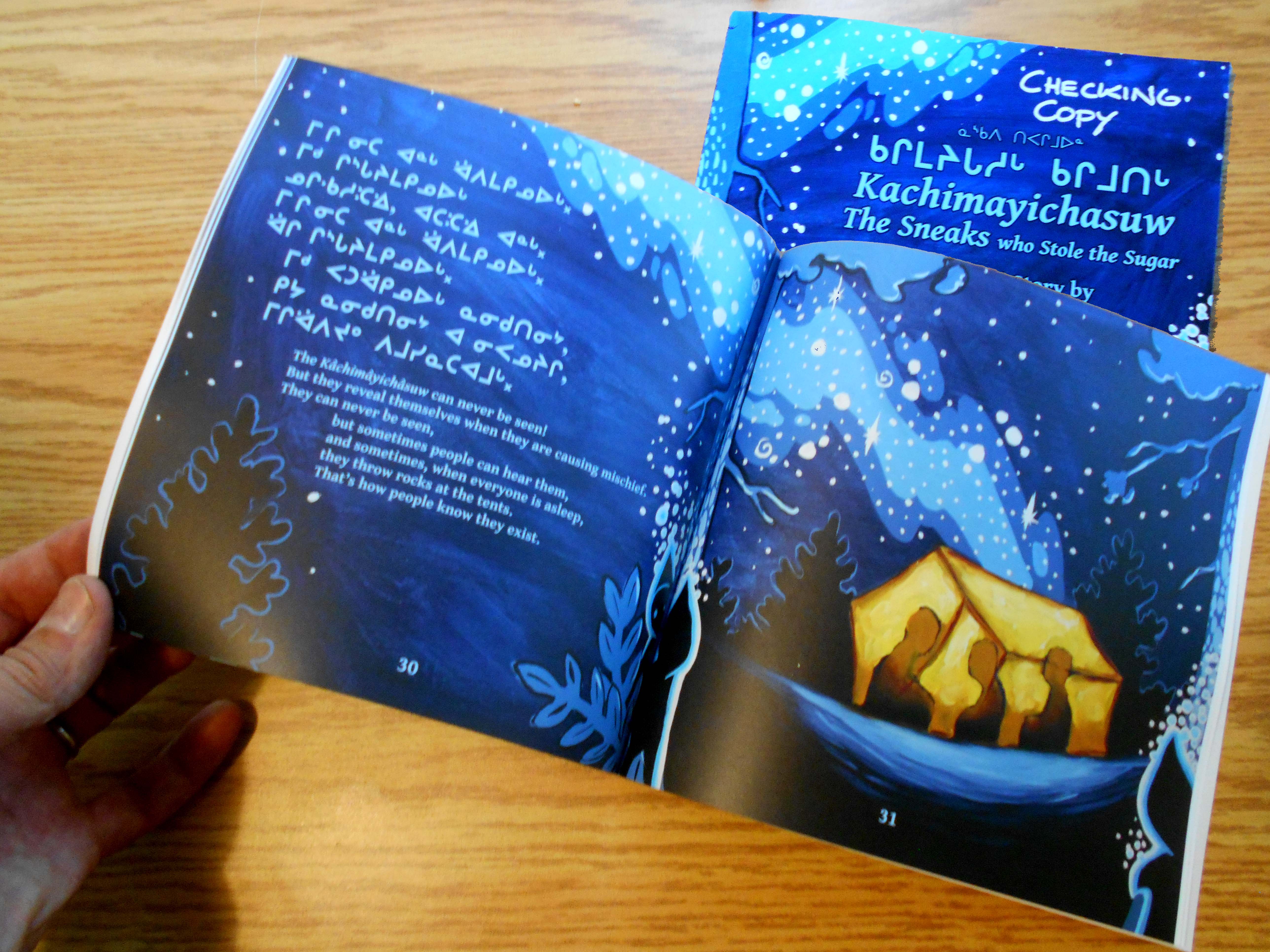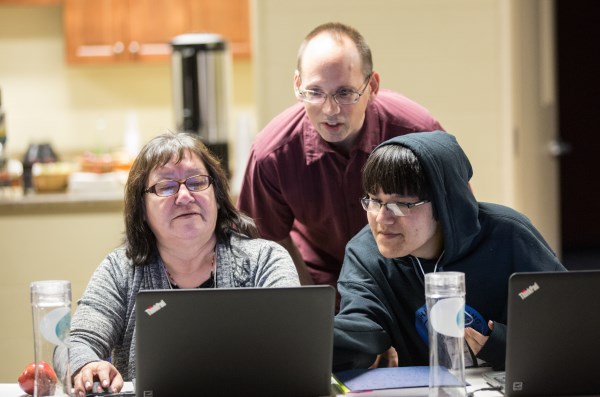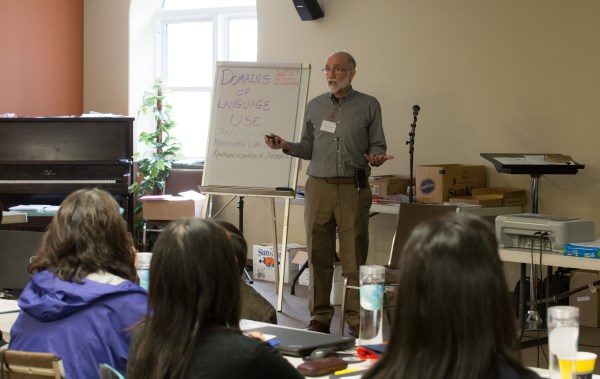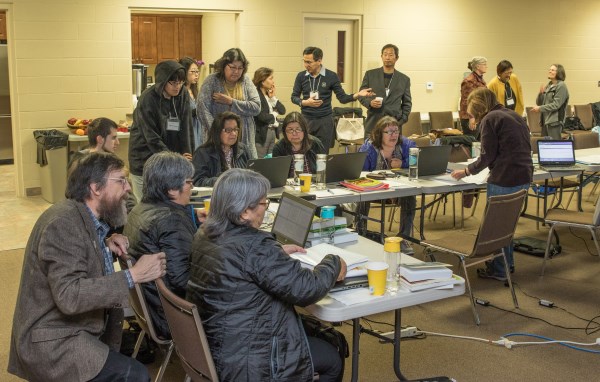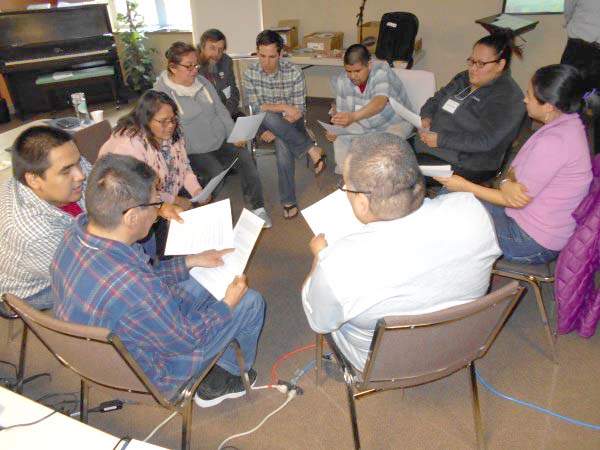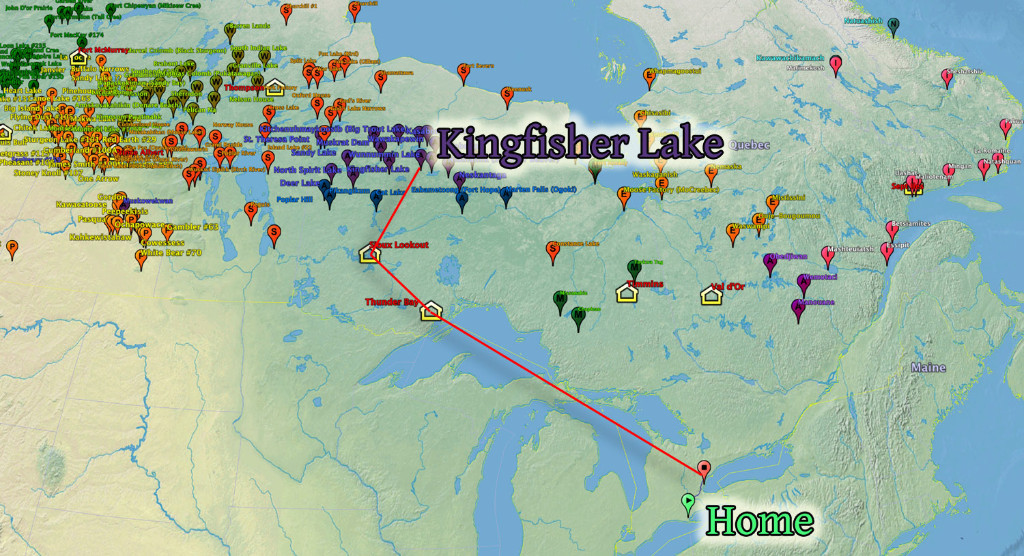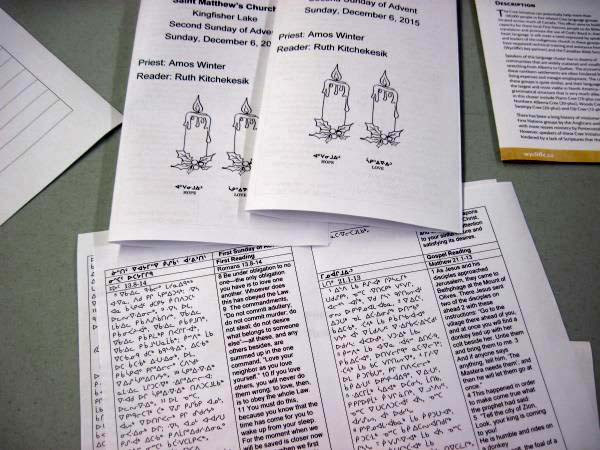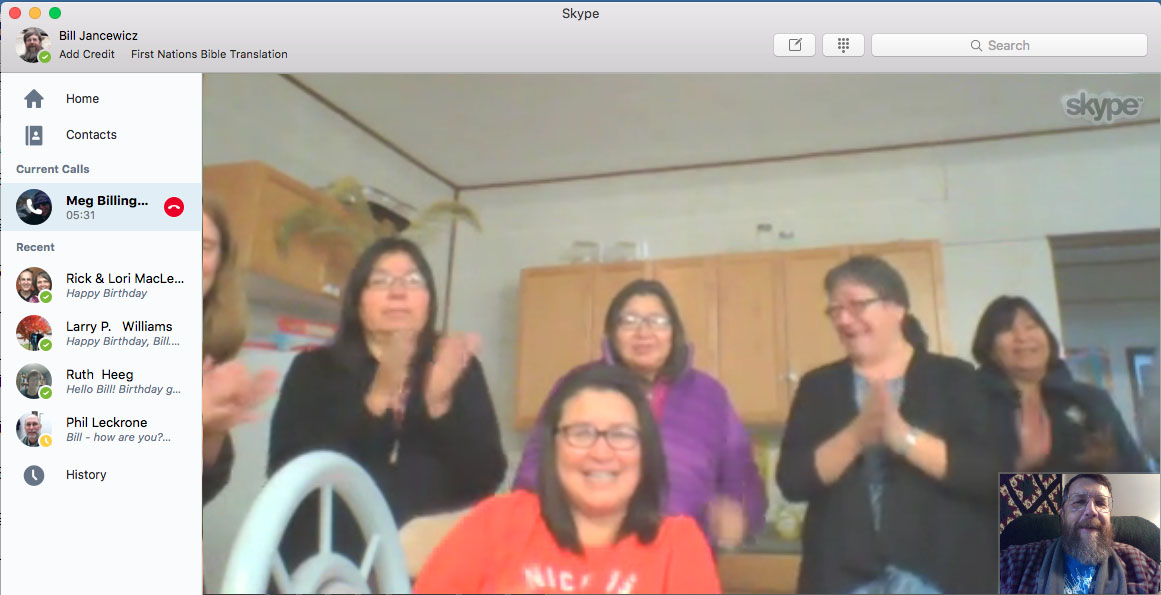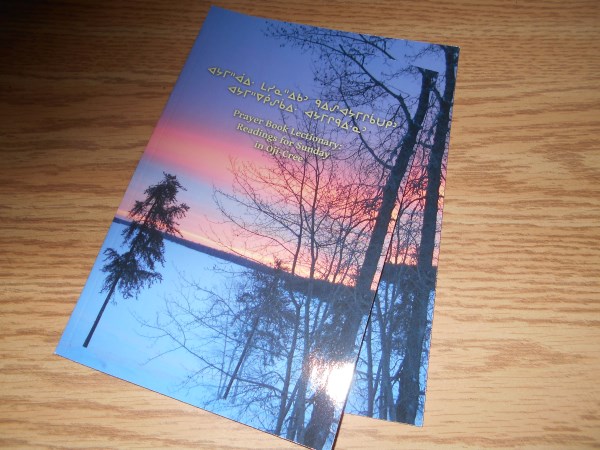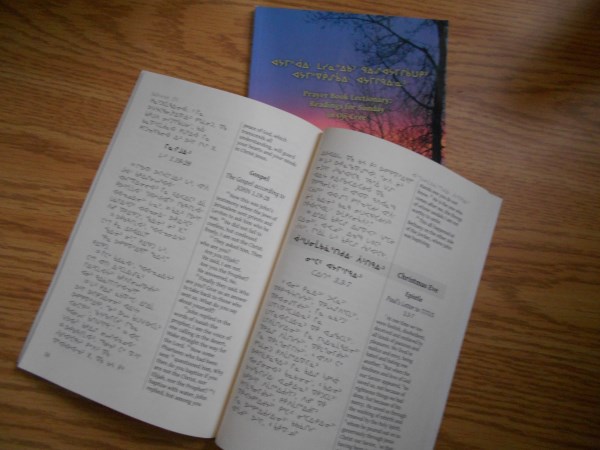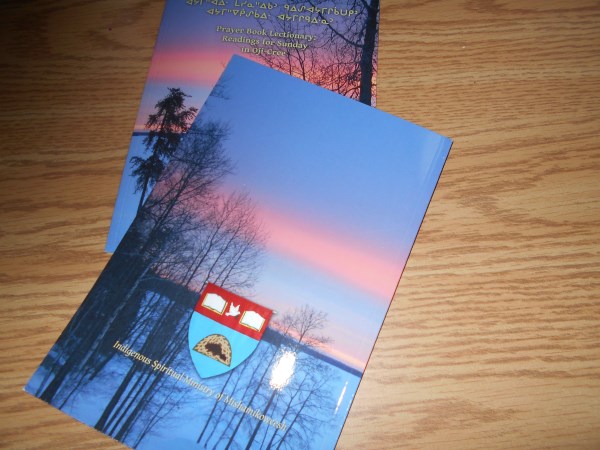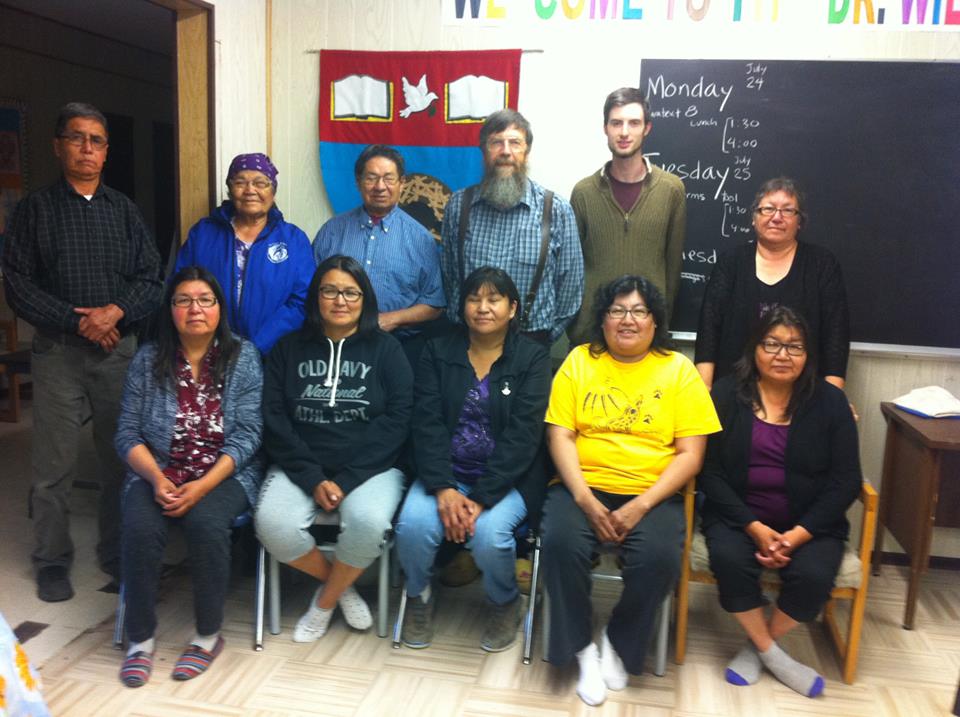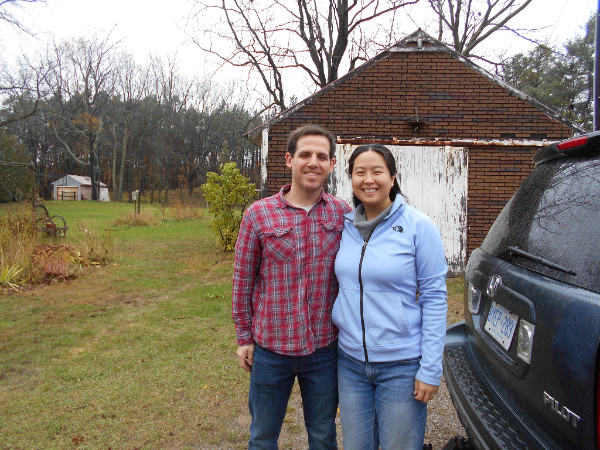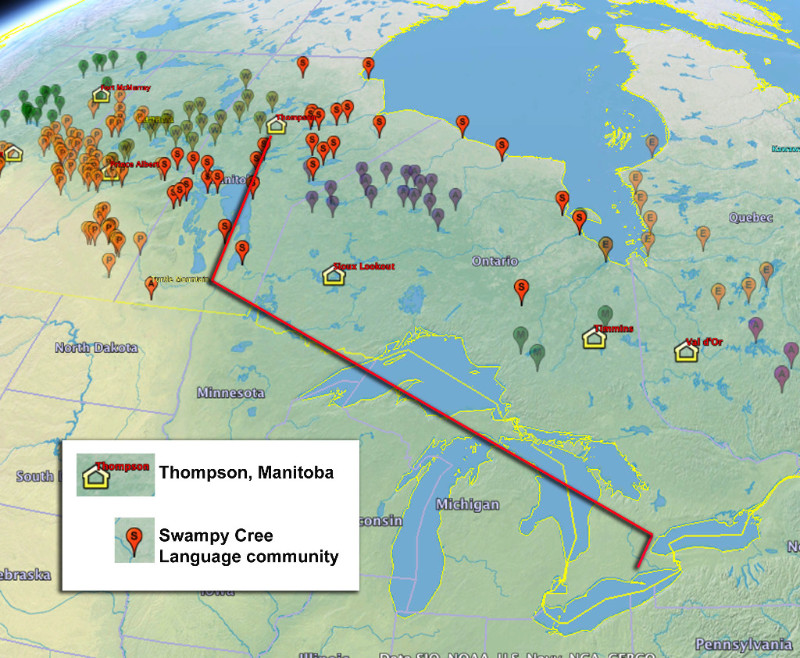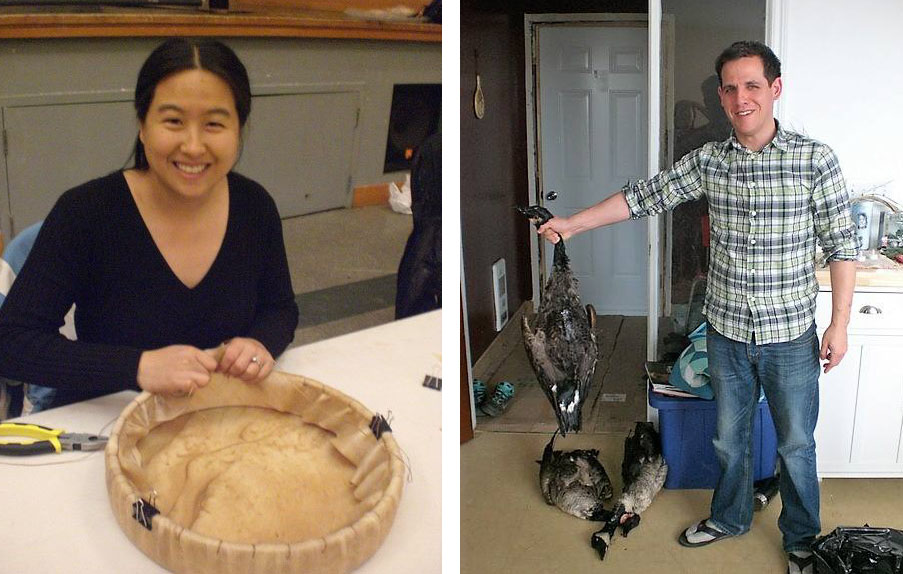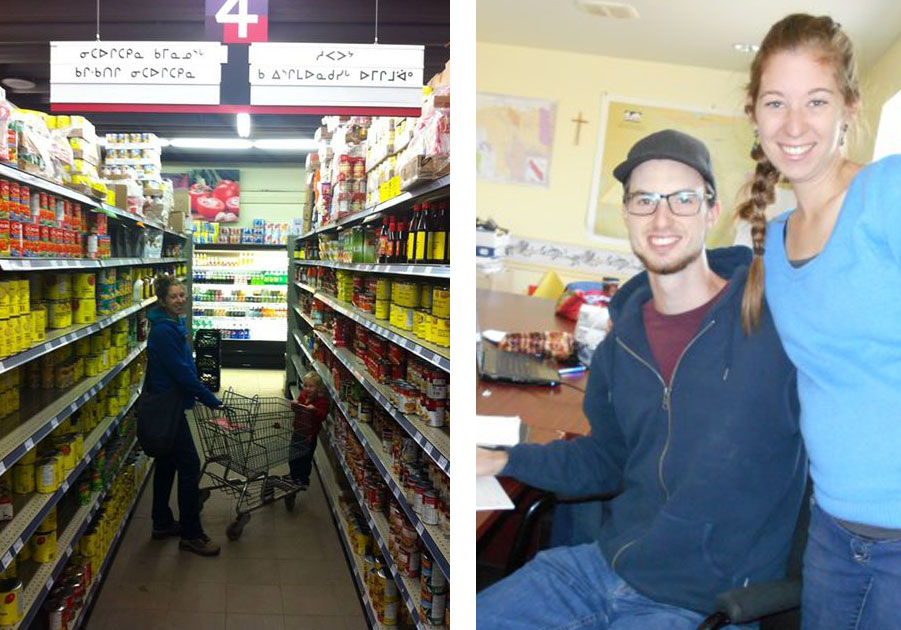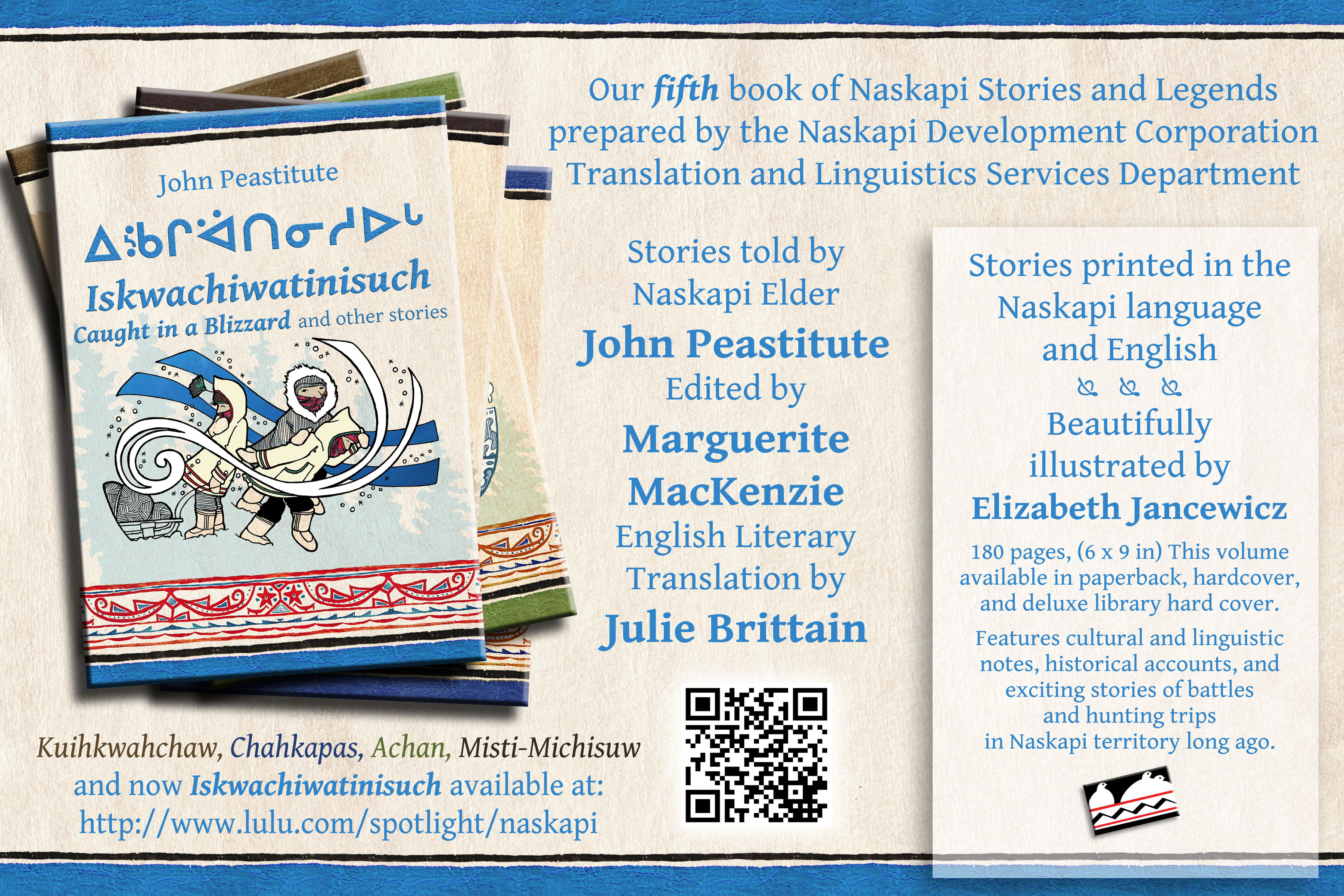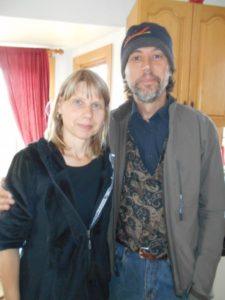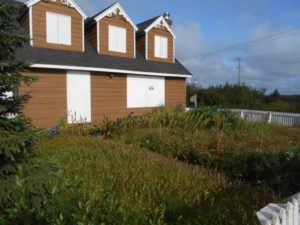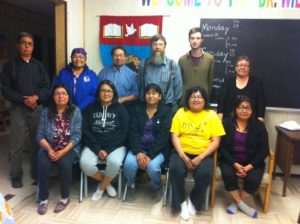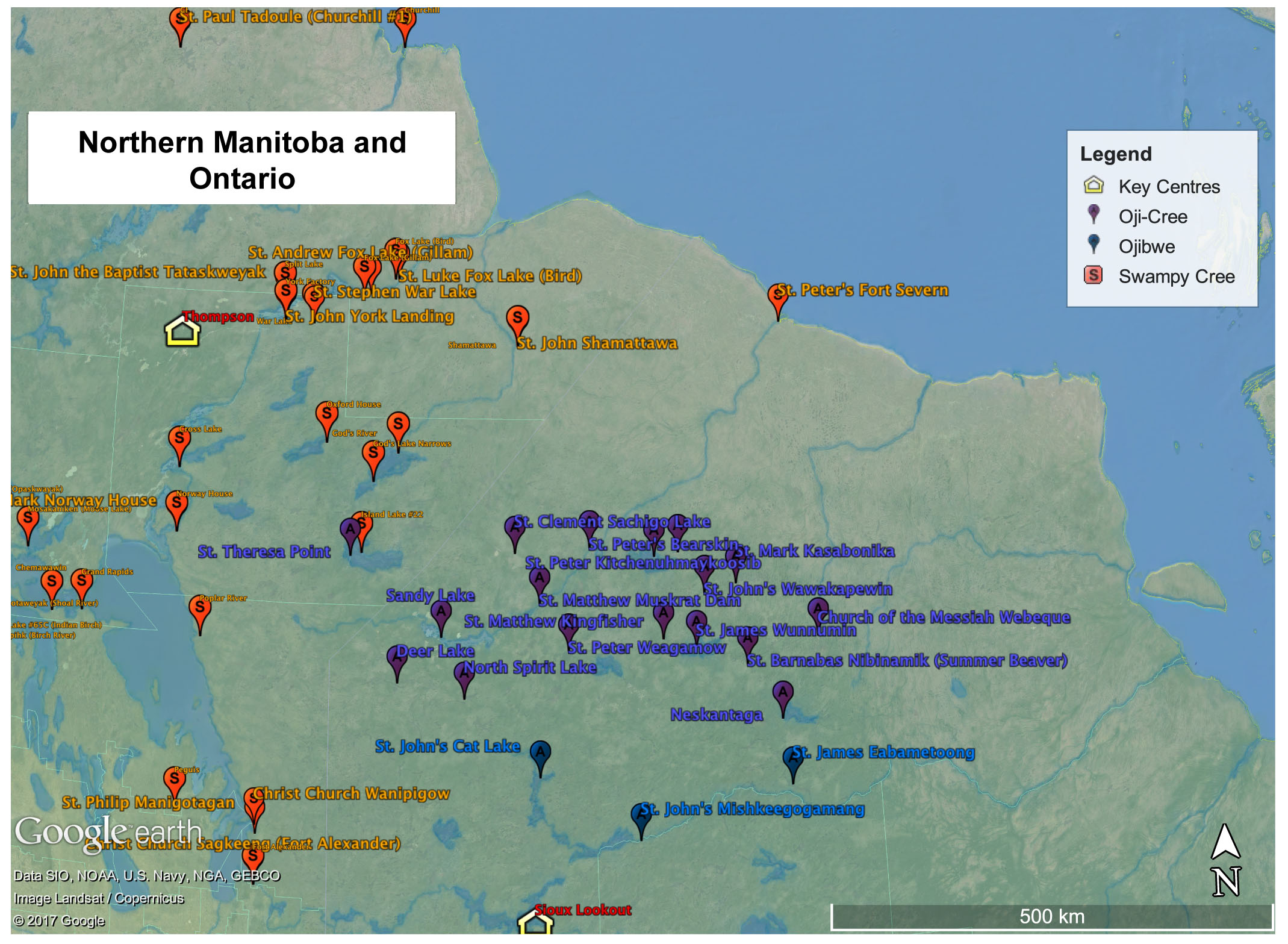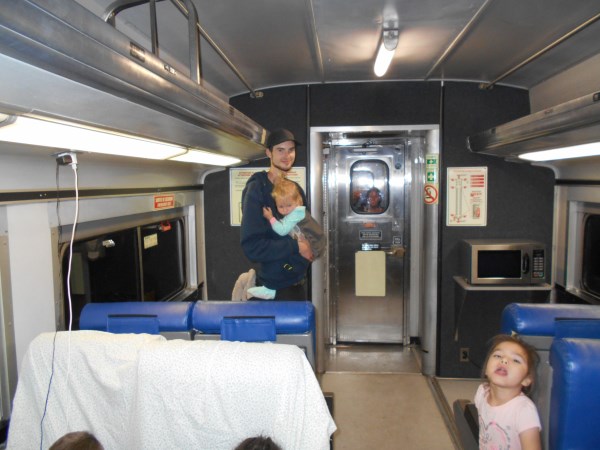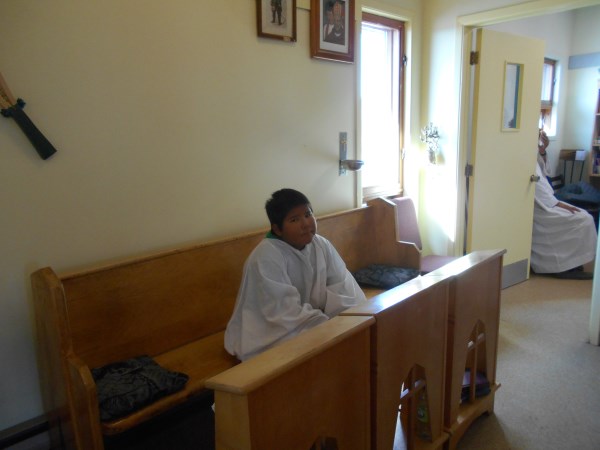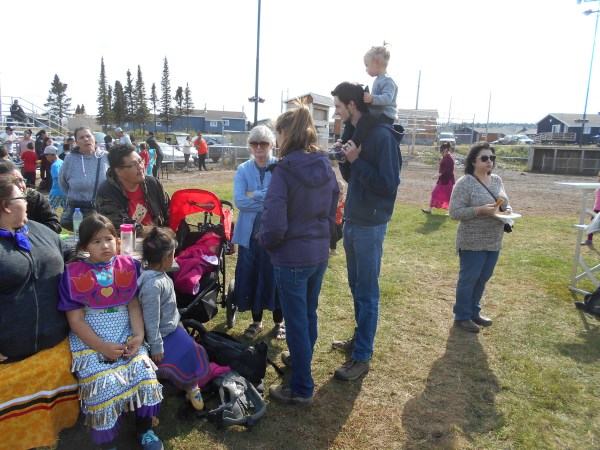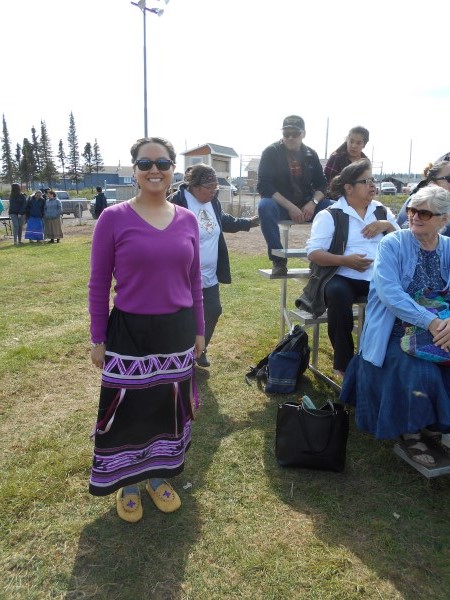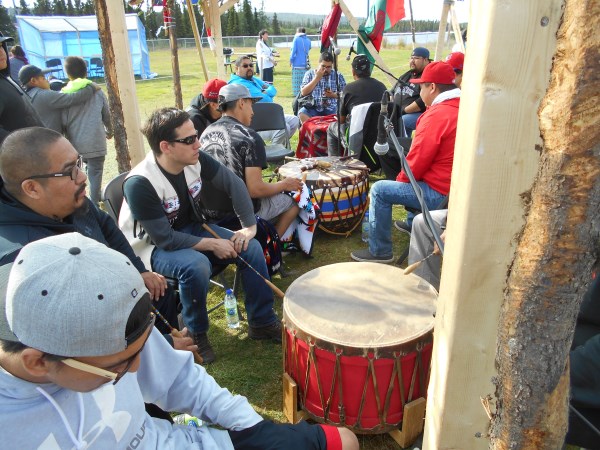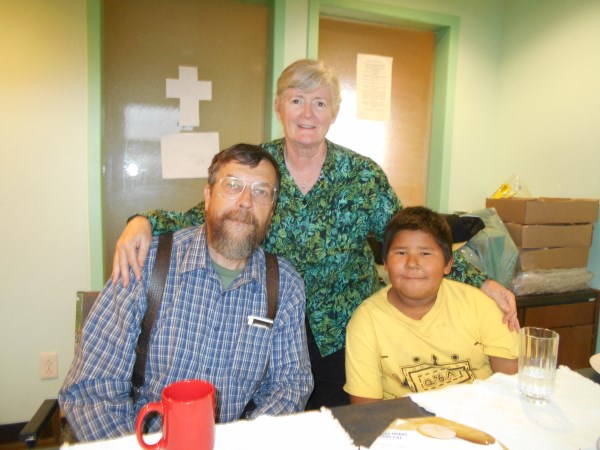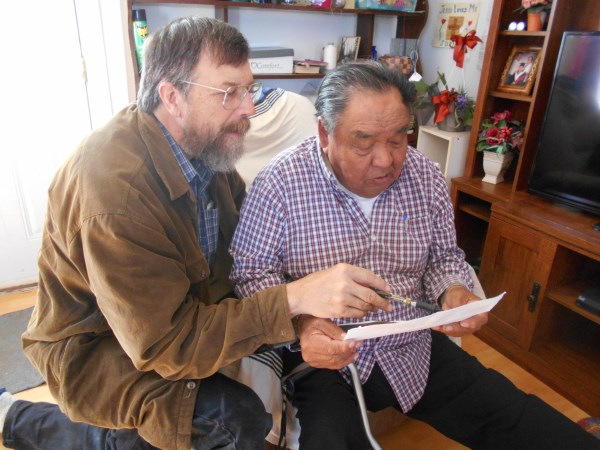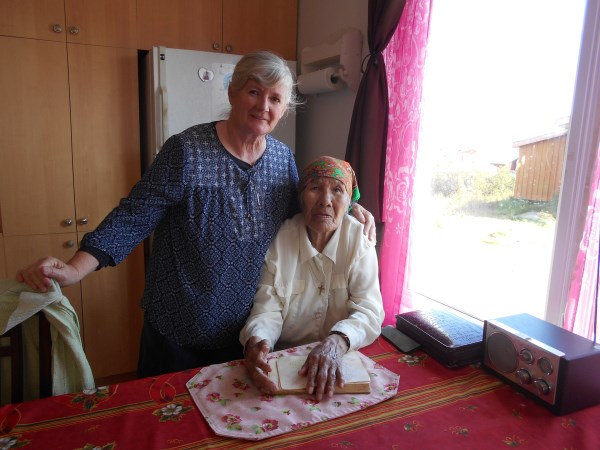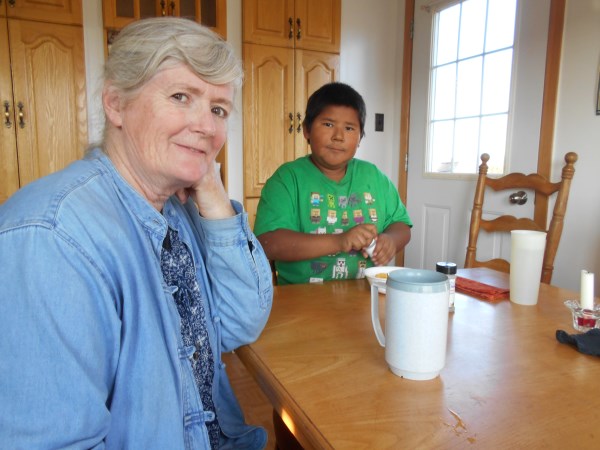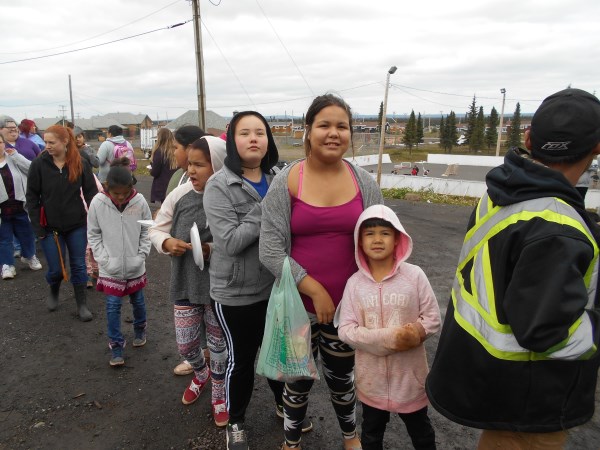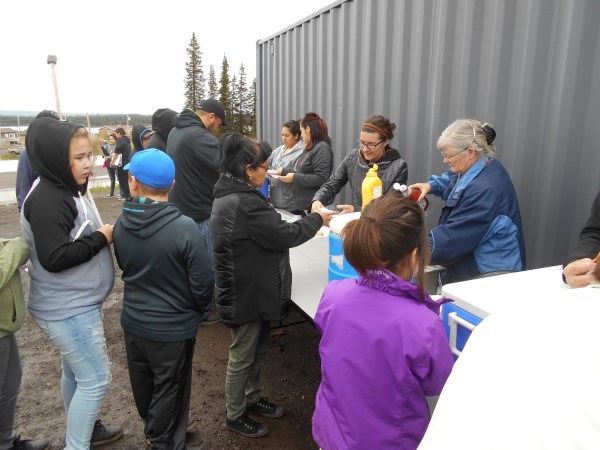Our Dear Partners
We are so grateful for your prayers for a successful First Nations Mother Tongue Translator (MTT) Workshop that was held in Guelph, Ontario in April. God has answered your prayers in wonderful and encouraging ways! This was our fourth such workshop in as many years.
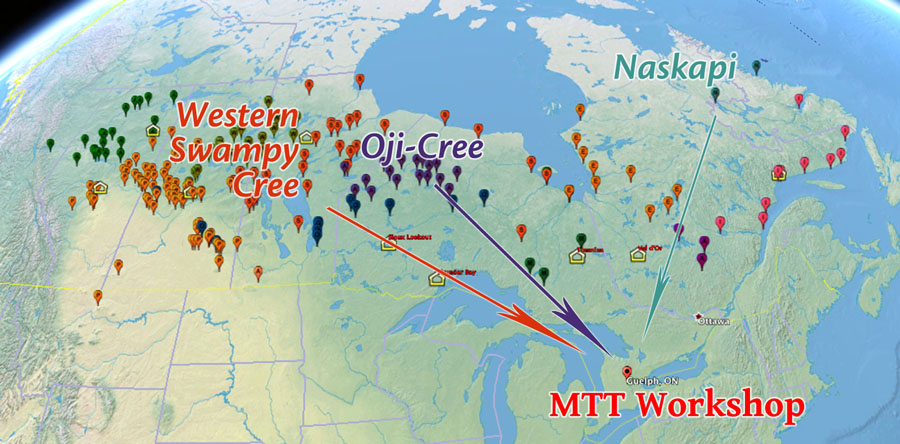
Speakers from three language communities came to this year’s workshop
What is a Mother Tongue Translator?
Even though we serve with a “Bible Translation” organization, we ourselves do not really translate the Bible ourselves: it is the fluent, “mother tongue” speakers of these languages who actually perform the Bible translation day-by-day, verse-by-verse.
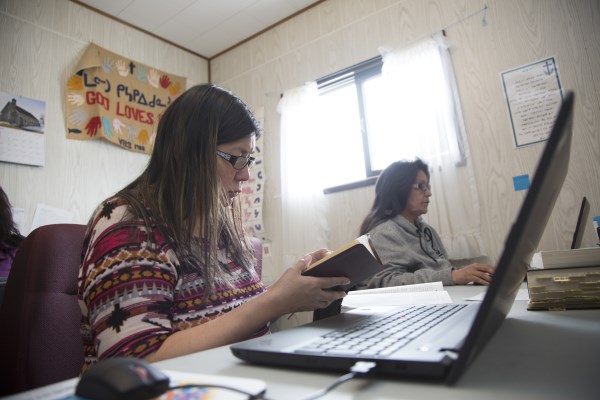
Oji-Cree mother tongue translators Zipporah and Jessie at work
These precious individuals speak their mother tongue, their heart language, and with some help from us translate the Word of God into the indigenous language of their community and family. Linguists, consultants, Bible Translation facilitators and others (like us) work along side mother tongue translators–we learn their language, we help them understand what the Bible means, and we equip them to make the best translation they can into their own language.
What is a Mother Tongue Translator Workshop?
While most of the work of Bible translation happens in the mother tongue translators’ home community, we conduct workshops to bring together many mother tongue translators from several communities. That’s what we did in Guelph this April.
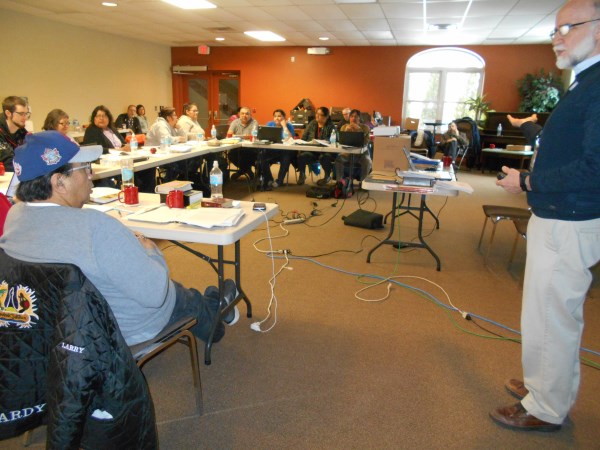
SIL International Translation consultant Steve Kempf teaching about Old Testament sacrifice
At workshops like this, the mother tongue translators can benefit by learning from a wide range of facilitators who serve on staff and come to bring their experience and expertise, helping each translation team with their own unique challenges.

Bible Society translation consultant Ruth Heeg teaching translation basics
They can also learn about new tools, materials and media that can help them bring the message of God’s love in their own language to a wider range of people in their own communities.
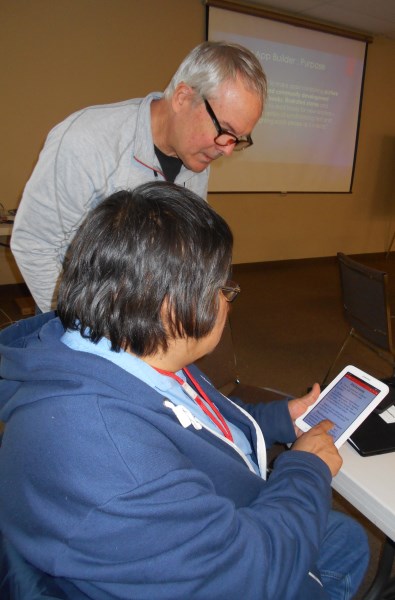
Colin Suggett demonstrates a talking “Scripture App” with audio
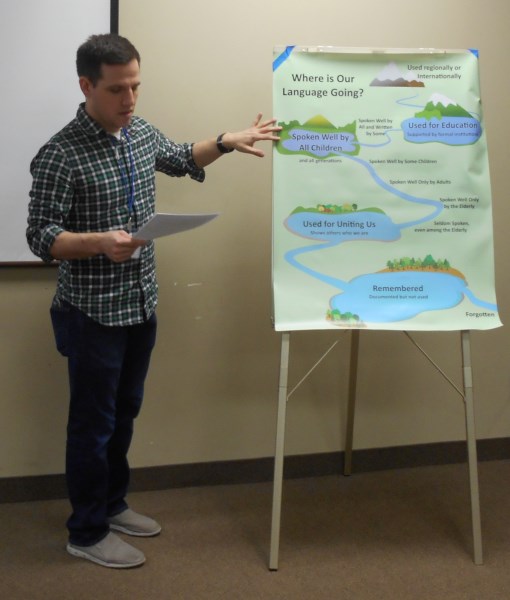
Martin Reed helps participants plan the future of their language
We usually think of the Bible in a “book” when we talk about Bible translation, but the Word of God is living and active, and is a vast story of God’s love for and redemption of every people, language and nation. At this workshop, participants were also trained to craft the story of the Bible in their own language and tell these stories orally.
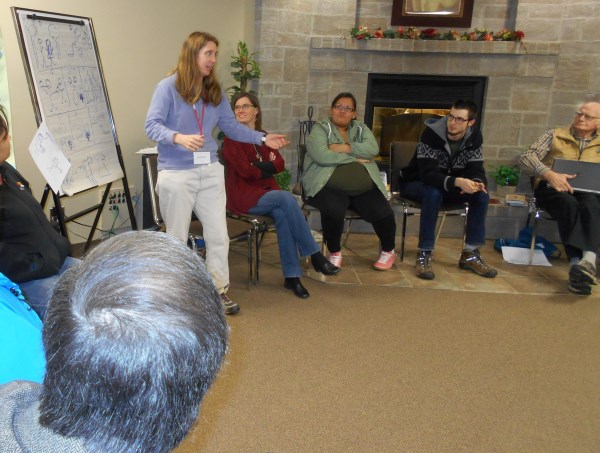
Meg Billingsley helps the participants learn the story of Adam & Eve
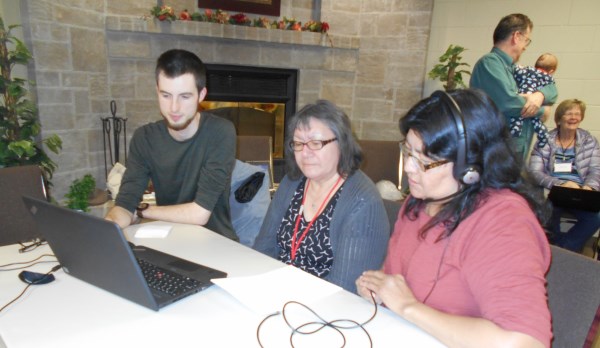
Matt Windsor helps the Oji-Cree team craft and record their oral Bible story
Even more importantly, mother tongue translators interact with other mother tongue translators from other languages, learning how their shared experiences can be an encouragement to each other, and realizing that they are not alone doing their task of Bible Translation for their home community.
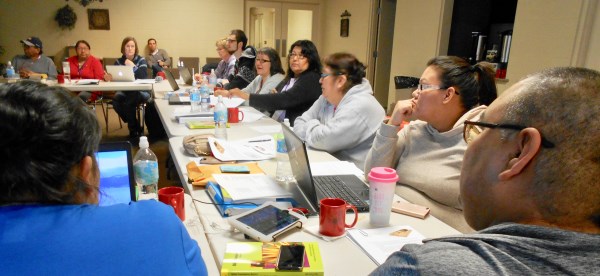
Speakers of Naskapi, Oji-Cree and Swampy Cree learning together
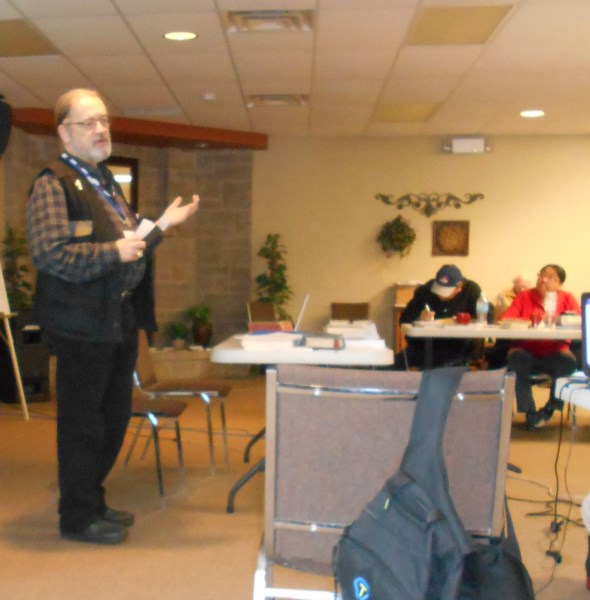
Rt. Rev. Mark MacDonald, the National Indigenous Bishop of the Anglican Church of Canada, addresses, encourages and prays for the participants
Why translate the Bible into minority First Nations languages?
God is doing a work in the hearts of speakers of indigenous languages across Canada. Their grandparents and great-grandparents were taught God’s message of love and grace during the past century and a half. Many of these learned the Word of God from books that were translated into languages that were not in their own their “mother tongue”, but sometimes some other language, such as a neighbouring dialect of Cree.
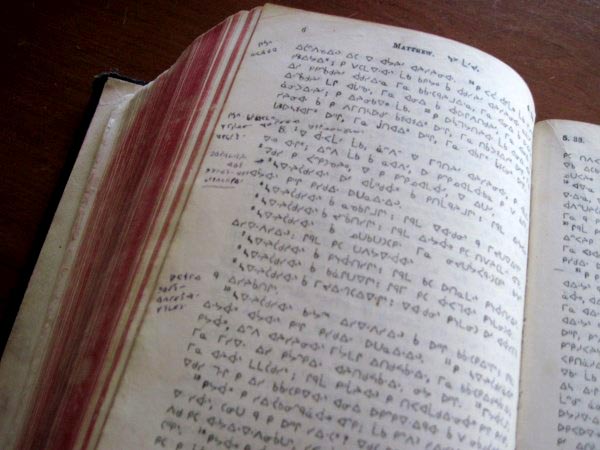
1863 translation of the Bible in Western Cree
Many of the First Nations mother tongue translators that we work with love Jesus. They also love their communities and they love their traditional languages that they learned from their parents and grandparents. Now, God has given them the desire to pass on their faith to their own children and grandchildren, along with their precious language which is such a vital part of their culture.
The history of relations between the First Peoples of this land and non-indigenous people have been sometimes strained and difficult. Practices of the newcomers and policies of our governments often resulted in the tragic loss of their traditional languages. Besides providing access to God’s message of love in their own language, the First Nations Bible translation movement also gives speakers of these languages the resources they need to make their languages sustainable and even to flourish.
God has been using these MTT workshops to train, equip and encourage mother tongue translators with the skills and capacity they desire to see their vision and realized.
Thank you for your prayers for this one. They were answered in wonderful ways.
Serving with you, Bill & Norma Jean

Rt. Rev. Mark MacDonald
“Mother tongue Bible translation is the most important thing you can be involved in for your community. It is really saving lives. It is hope that we give to our children and our grandchildren and great-grand children. The Holy Spirit assists you in your work of translation because it results in praise to God.
“The Word of God must become living and real in the languages of our communities. It is a part of our preparation of the coming of Christ: Bible translation in your local languages has a role in God’s plan for the universe. So, it is vital on a physical level but also on an spiritual and eternal level as well.”
–from the address by the Rt. Rev. Mark MacDonald, National Indigenous Bishop, to the participants at the 2018 First Nations Mother Tongue Translator (MTT) workshop, Tuesday, 17 April 2018, Guelph, Ontario.
More pictures from this year’s workshop:
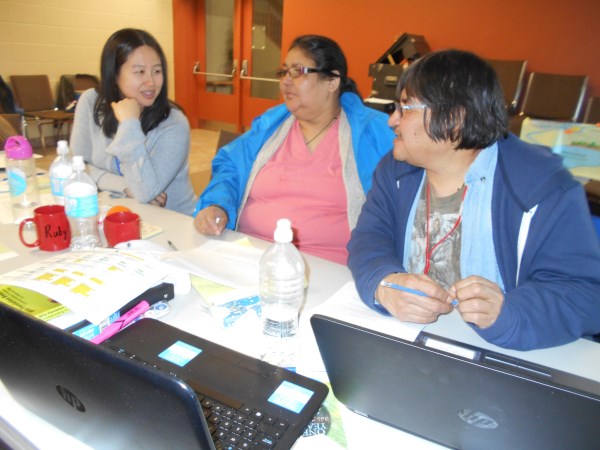
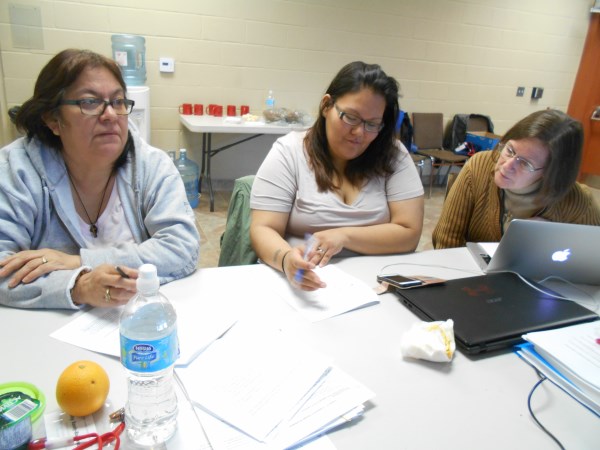
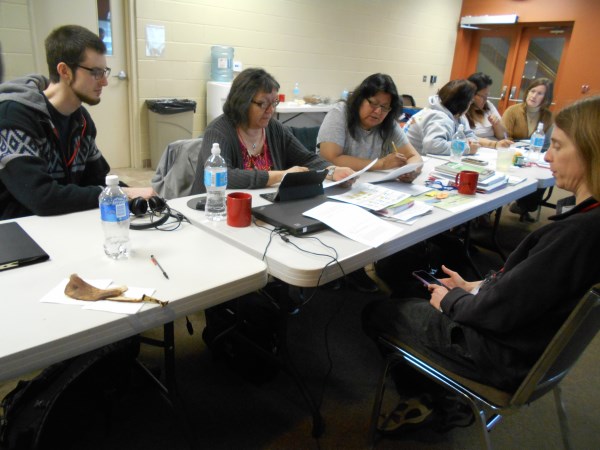
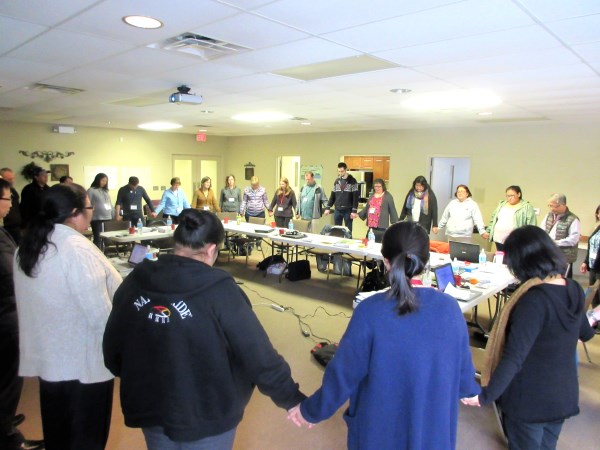
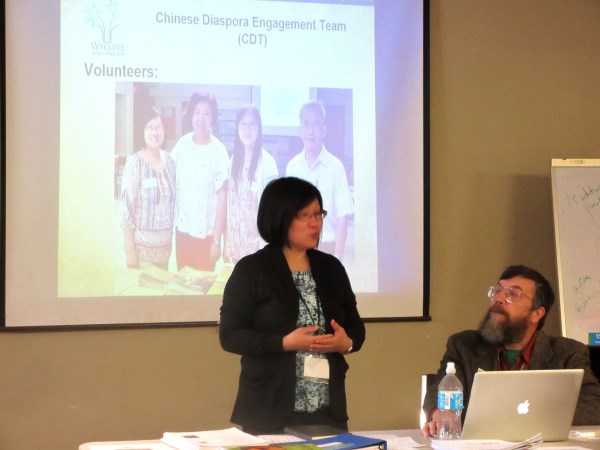
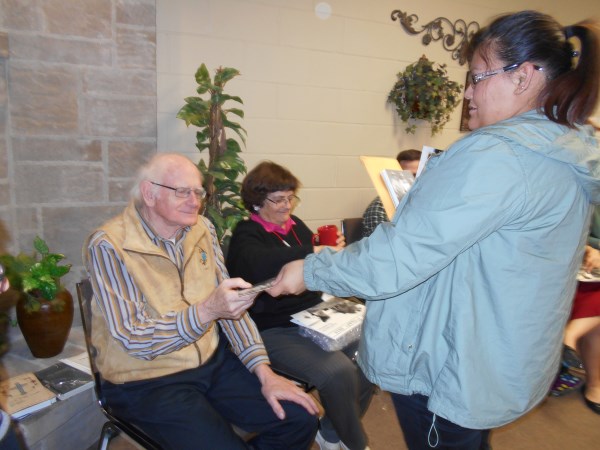
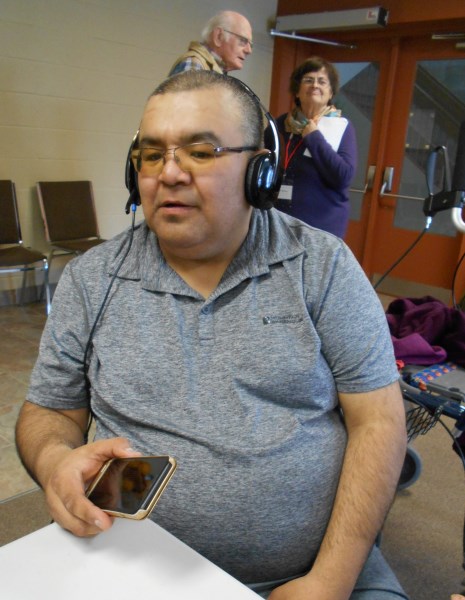
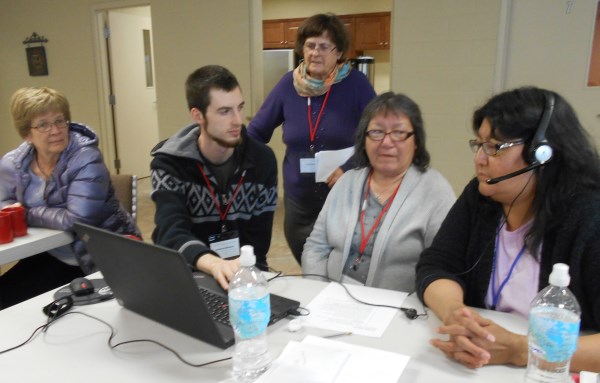
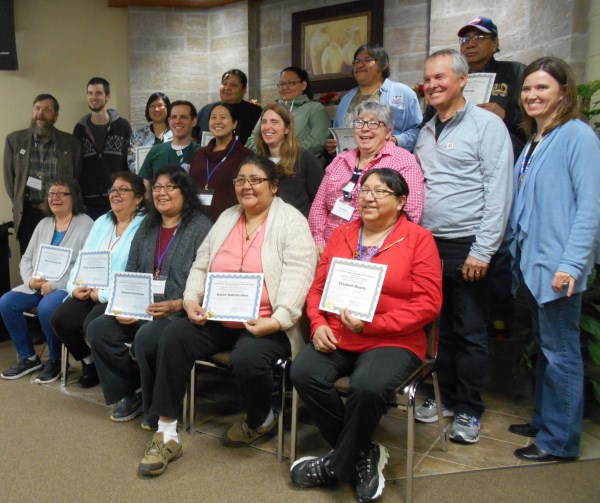

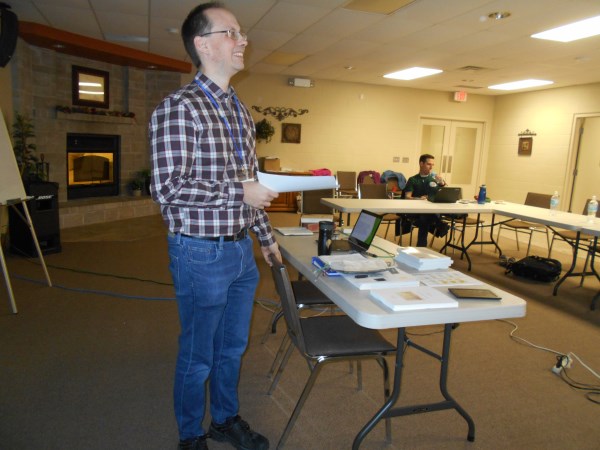
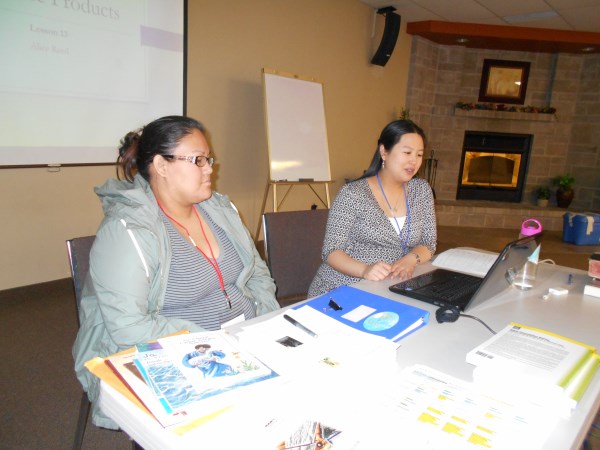
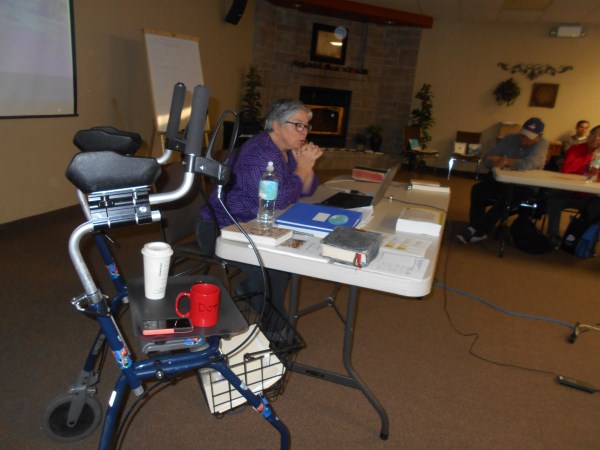
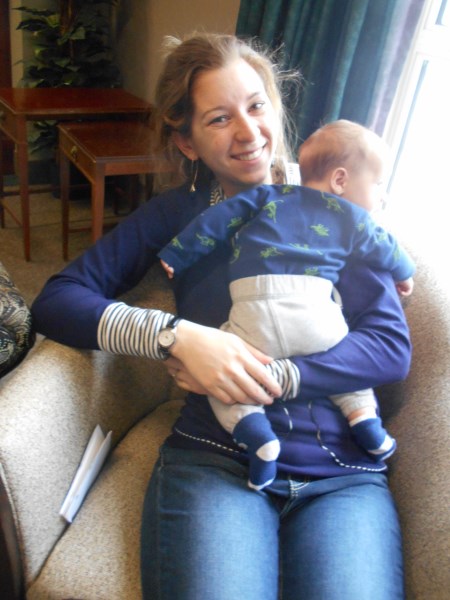
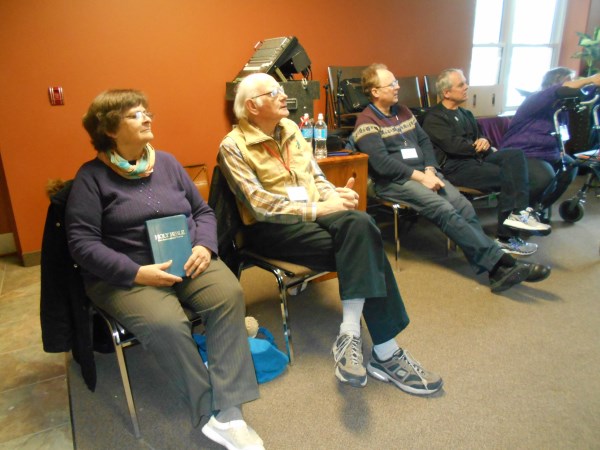
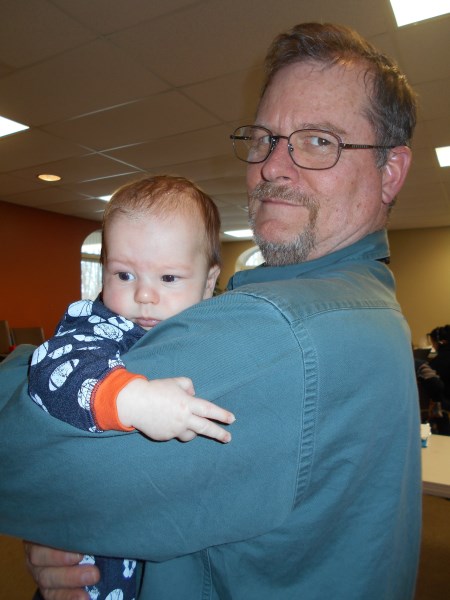
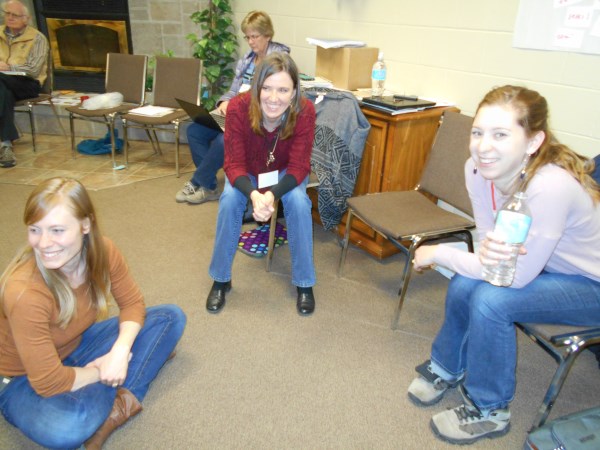
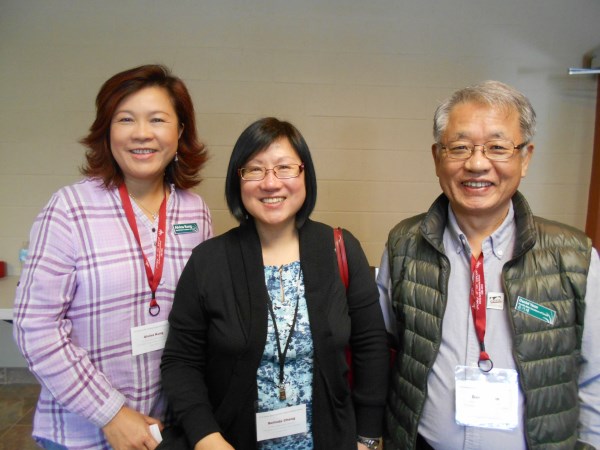

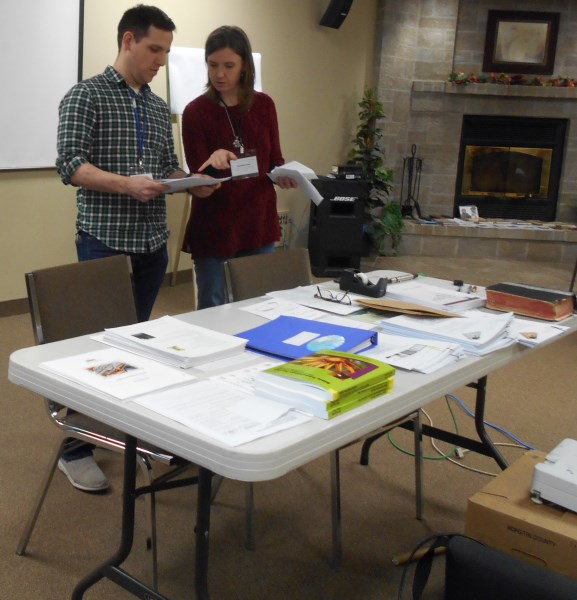
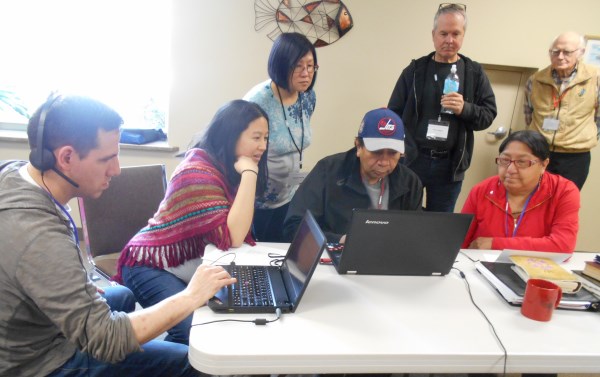
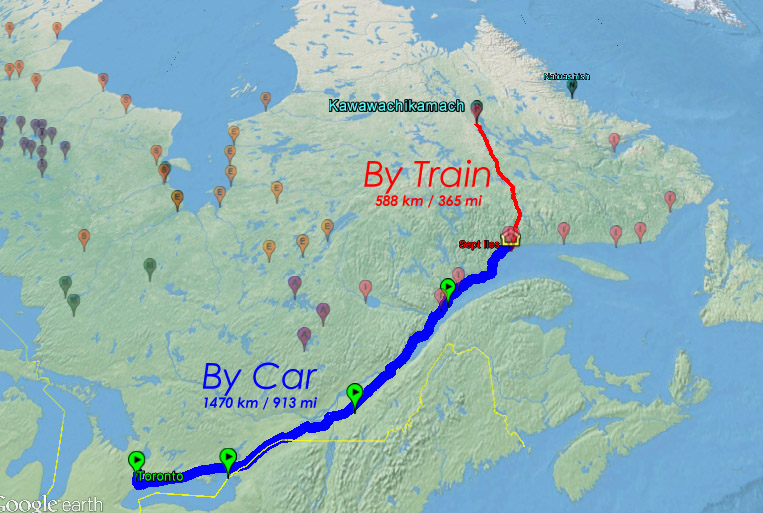 As many of you know from our previous Translation Briefs, the Naskapi Bible Translation project has been not only the inspiration and motivation for other First Nations communities to begin their own translation projects, but the Naskapi project is also a place where Next Generation Bible translation facilitators can gain practical experience serving a project as Linguistics Interns. Two new young teams recently starting their service to other First Nations translation projects, the Reeds and the Windsors, have completed their internships at Kawawachikamach with the Naskapi.
As many of you know from our previous Translation Briefs, the Naskapi Bible Translation project has been not only the inspiration and motivation for other First Nations communities to begin their own translation projects, but the Naskapi project is also a place where Next Generation Bible translation facilitators can gain practical experience serving a project as Linguistics Interns. Two new young teams recently starting their service to other First Nations translation projects, the Reeds and the Windsors, have completed their internships at Kawawachikamach with the Naskapi.
